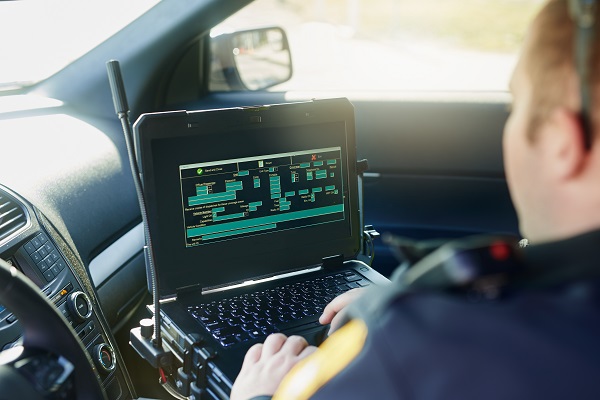Police paperwork is a challenge that many law enforcement professionals face, with many spending nearly 50 percent of the workday on incident reporting. This impacts several aspects of policing, including officer safety, productivity, and criminal proceedings. Speech recognition technology can help.
Incident reporting is important in police work and helps keep investigations and cases moving along, but it can also be time-consuming. In fact, close to fifty percent of an officer’s day can be spent typing up reports or entering data into computer-aided dispatch (CAD) and records management systems (RMS), according to a recent survey. Heavy documentation can mean officers stay heads-down in their patrol cars, making them less situationally aware, or back at the station mired in paperwork.
Challenges in police paperwork are nothing new, but there is a new grouping of police reporting tools like speech recognition that can help. Here are 3 ways.
1. Improve situational awareness
When conducting tasks like license plate lookups or entering data into the CAD/RMS, an officer shifts focus from his or her surroundings and, if heads-down in the patrol car, can make them more prone to accidents – or ambush. Combine this with the poor ergonomics of having to shift and turn in the car seat to enter data into their laptops, and in-car documentation becomes less than ideal. With tools like speech recognition, officers can use their voice instead of manually typing or hunting and pecking on the computer keyboard. They stay heads-up and more focused and safer on patrol.
2. Improves specificity and accuracy within reports
According to the forgetting curve, within an hour most people only remember 50 percent of the information presented to them, and forgetfulness drops to 75 percent within 24 hours. Relying on manual documentation alone is risky. Officers, who are responding to multiple incidents each day, need to rely on memory-recall or decipher hand-written notes from hours before. Both can lead to inaccuracy and lack of specificity, which is a major concern when the outcomes of criminal proceedings are tied to the incident reports officers’ file. By dictating notes in real-time, officers can capture more detail and create a “narrative” of each incident, leading to better reporting.
3. Speeds documentation and reporting deadline
Meeting reporting deadlines is the lifeblood of police departments, and if these deadlines are not met, criminal proceedings can be stalled, or worse, abandoned. Speech recognition can help speed report turnaround times. Reports that traditionally took hours to create can be completed in minutes – simply by speaking.
Police paperwork is a challenge that many law enforcement professionals face. New police reporting tools like speech recognition technology can help






